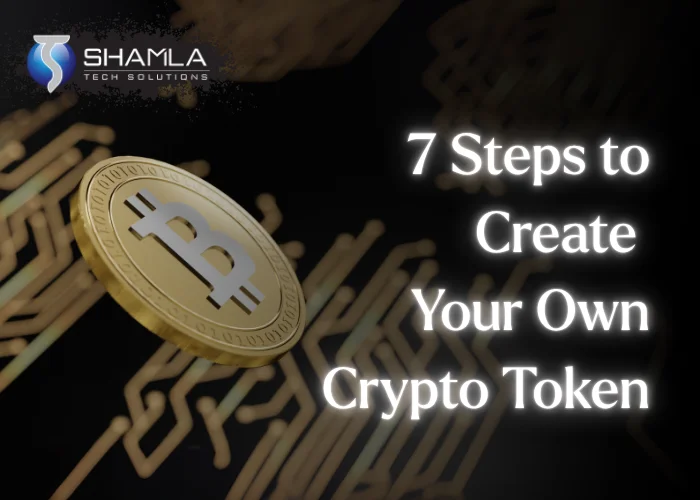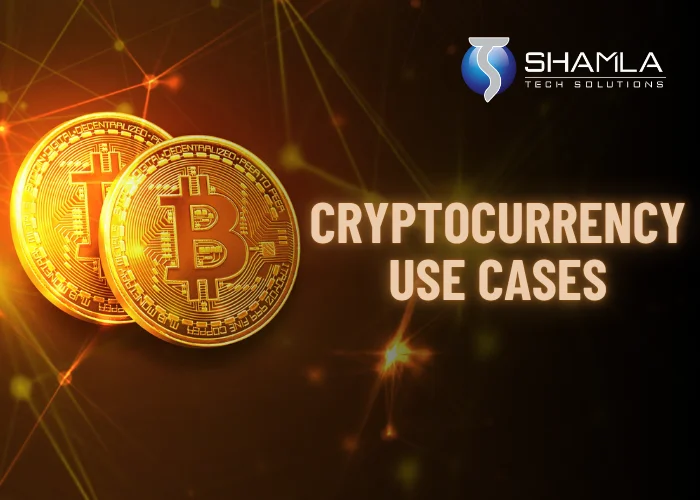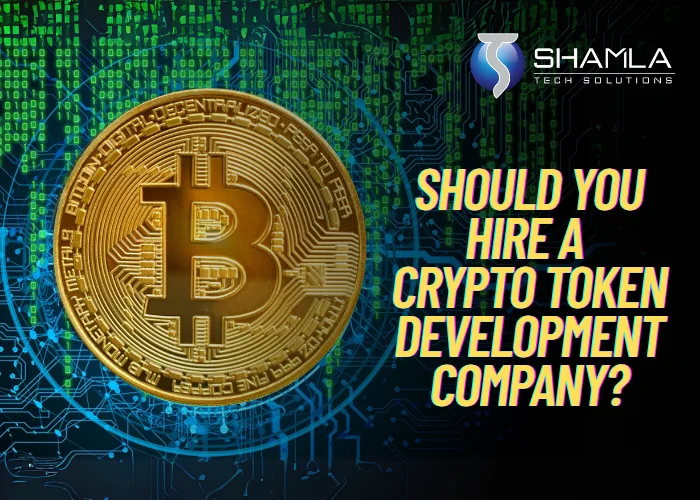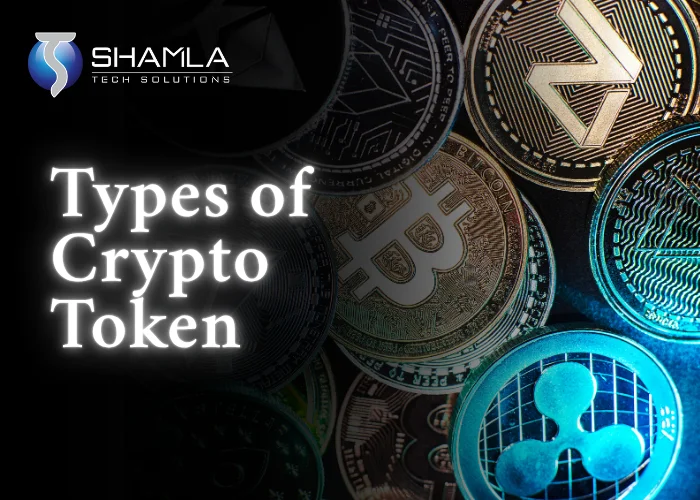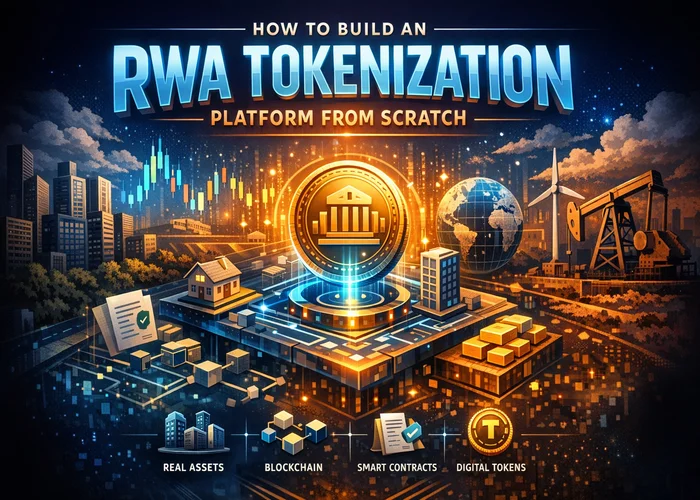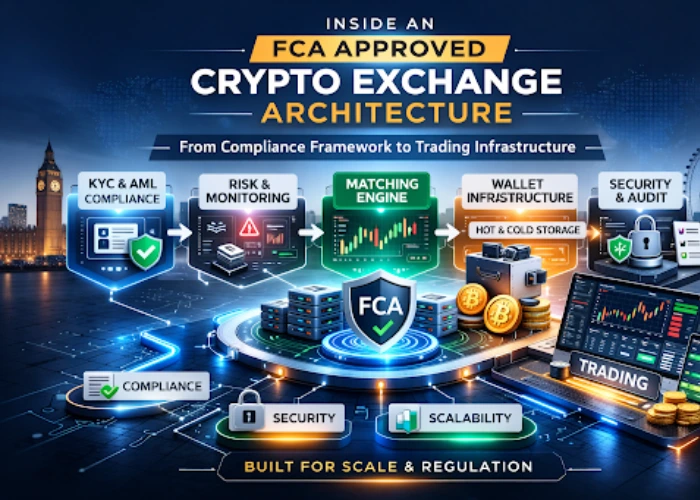Understanding Token Fundamentals
It’s important to know what you’re making before you start making tokens. A crypto token is a digital asset that is meant to work in a certain blockchain environment. Tokens use current blockchain infrastructure, while cryptocurrencies like Bitcoin and Ethereum have their own blockchains.
There are a few main types of tokens:
- Utility tokens: Let you use a product or service
- Security tokens are like traditional securities in that they show who owns an asset.
- Tokens for governance: Give people the power to vote in a protocol or DAO
- Tokens that can’t be traded (NFTs): Show one-of-a-kind digital or tangible assets
- Coins that stay the same Keep a constant value, usually tied to real money
The first stage in making your token is to figure out what it will be used for. This will guide all of your other decisions.
7 Steps to Create Your Own Crypto Token
Step 1: Define Your Purpose and Tokenomics
The first thing you need to do to create your own crypto token is to make sure you know what it will be used for:
Utility Token: To get in, get prizes, or use the platform.
Governance Token: For making decisions and voting.
Security Token: A sign of ownership or investment.
Tokenomics is just as crucial. Make a choice:
Plan for the total supply and distribution
Decimals (how to divide)
Rules for minting and burning
Team and investor vesting schedules
A well-planned tokenomics model is the key to making a successful crypto token.
Step 2: Choose the Best Blockchain for Token Development
Blockchain | Token Standard | Pros | Cons |
Ethereum | ERC20 | Most adopted, DeFi/NFT support | High gas fees |
Binance Smart Chain | BEP20 | Low fees, fast, wide adoption | Centralization |
Solana | SPL | Ultra-fast, low fees, scalable | Newer ecosystem |
Polygon | ERC20 | Ethereum compatible, low fees | Less decentralized |
Step 3: Decide on Token Standards and Features
Find out if your token will be:
Fungible (ERC20, BEP20, SPL): All tokens are the same (for money, governance, and rewards).
Non-Fungible (ERC721, SPL NFT): Each token is one of a kind and is utilized for things like art, collectibles, and games.
List traits like:
Ability to mint or burn
Contracts that can be paused or updated
Mechanics that cause deflation, such the burn rate
Taxes on transactions or regulations against bots and whales
Tip: Your token will work with wallets and exchanges if you use established standards like ERC20, BEP20, and SPL.
Step 4: Develop Smart Contracts or Use Token Creation Tools
A. Tools for Making Tokens Without Code
You don’t need to know how to code to create your own crypto token on sites like Token Tool, Smithii, and Pump. fun. Most of the time, the steps are
Link your wallet (like MetaMask or Phantom).
Enter the token’s name, symbol, supply, and number of decimals.
Set up advanced features like mint, burn, freeze, and so on.
Confirm and pay the network fees
Token is automatically put into use
B. Building Custom Smart Contracts
Use Solidity (Ethereum/BSC/Polygon) or Rust (Solana) to develop your own smart contract if you want to fully customize it. Important steps:
Write code for the contract that defines functions, supplies, and permissions.
Test on the blockchain testnet
Deploy to the mainnet
If you don’t know how to code, employ a crypto token development company to make sure the process is safe and quick.
You can also read about the How to Create a Crypto Token on Solana blog to get more information about ERC20 Token Development Companies and BEP20 Token Development Companies.
Step 5: Test and Audit Your Token
Before you start your own cryptocurrency token, you need to do a lot of testing and auditing.
Testnet Deployment: Put your token on a testnet to see whether it works and to find any bugs.
Smart Contract Audit: Hire professionals or use automated tools to review your code for vulnerabilities.
Community Testing: Ask beta testers to use your token and give you feedback.
For effective crypto token development, security is a must.
Step 6: Deploy and Launch Your Own Cryptocurrency Token
After your token has been tested and reviewed:
Deploy to the mainnet (Ethereum, BSC, Solana, and so on)
Tell your community about your launch
If you can, put your token on DEXs like Uniswap, PancakeSwap, and Raydium as well as CEXs.
Sign up your token on explorers like BscScan, Etherscan, and Solscan.
You can also use sites like launchpads and token sale platforms to launch a crypto token and reach more people.
Step 7: Promote, List, and Scale Your Token
After making your own crypto coin, you should work on:
Marketing: Use social media, Discord, and Telegram to build a community.
Listings: Apply to big exchanges and DeFi platforms.
Integrations: Make sure that wallets, DeFi, and dApps can all work together.
Keep getting better: Get input from users and make changes to your ecosystem.
A strong go-to-market plan is essential for the success of crypto token production.
Cryptocurrency Use Cases
To launch your own cryptocurrency, it is crucial to hire the best crypto token development company or to hire a company for creating your own token. Before doing all these things, learn about the cryptocurrency use cases.
#1 Digital Payments and Transactions Between People
Originally, cryptocurrencies were made so that people could make safe and private transactions with one other without the need for banks or other middlemen. Bitcoin was the first cryptocurrency, and it made digital payments possible. Users may transmit money across borders fast and for less money than they would with a typical bank.
Bitcoin (BTC) is still the most popular cryptocurrency for everyday transactions. A lot of establishments, both online and in person, will take Bitcoin as payment. Overstock.com and Shopify, for example, let users purchase with Bitcoin for a wide range of goods.
#2 Cross-Border Remittances
Cryptocurrencies are a cheap way to send money across borders. People who work overseas can send money back home to their relatives without having to pay the exorbitant costs that come with regular transfer services. This use case is especially useful for people who don’t have easy access to banks.
Ripple’s XRP is a good example of a real-world currency that is regularly used for cross-border payments. Companies like MoneyGram and Western Union have looked into working with Ripple to use its blockchain technology to make international money transfers faster and cheaper.
#3 Decentralized Finance (DeFi)
DeFi is a growing area in the world of cryptocurrencies that provides financial services without the need for banks. People can borrow, lend, trade, and earn interest on their cryptocurrencies on DeFi services. People realize that this ecosystem is open and easy to get to.
Compound Finance and Aave are two prominent DeFi platforms that let people earn interest by lending their cryptocurrencies or borrow assets by using their cryptocurrency as collateral.
#4 Non-Fungible Tokens (NFTs)
NFTs are a way to hold one-of-a-kind digital assets, and they are very popular in the areas of art, gaming, and entertainment. People commonly use them to show that they own and that things are real, such artwork, music, collectibles, and in-game stuff.
The sale of digital art as NFTs has taken the art world by storm in real life. On sites like OpenSea and Rarible, artists like Beeple have sold NFT-based works of art for millions of dollars.
#5 Smart Contracts
Smart contracts are contracts that automatically carry out their conditions because they are encoded straight into code. They automate tasks and get rid of the need for middlemen in a number of fields, such as insurance, law, and supply chain management.
Ethereum is the best platform for making and running smart contracts in the real world. Companies like Chainlink make oracles that let smart contracts work with real-world data, which makes them more useful.
Cost to Create Your Own Crypto Token
The cost to create a crypto token depends on the platforms to launch a crypto token and how hard it is to do:
No-code tools cost from $50 to $500, plus network fees and a service fee.
Custom smart contracts cost between $3,000 to $20,000 or more to make, test, and implement.
Cost of hiring a crypto token development company: $10,000 to $100,000 or more for full-service.
Token features, security audits, UI/UX, and marketing are all things that might effect the cost. Compare with ERC20 Token Development Companies and BEP20 Token Development Companies for platform-specific pricing.
The above is the cost to create your own crypto token.
Should You Hire a Crypto Token Development Company?
If you want to ensure a secure, scalable, and compliant launch, consider hiring the best crypto token development company. Some benefits are:
- Smart contract development and audits by professionals
- Custom features and connections
- Guidance from the government
- Ongoing support and upgrades
You can hire a company to create your own token or work with freelancers, but always check their track record and client reviews for successful crypto token development
How does a Crypto Token work?
Successful crypto token development can be achieved by selecting best blockchain for token development.
“Crypto” is short for “cryptography,” which is the study of several ways to protect cash and digital money using elliptic curve encryption, public-private key pairs, and hashing algorithms. Here’s how to explain the basic idea of to create your own crypto tokens:
Origin: A token is created based on the structure of a blockchain, and this is how different cryptocurrencies are able to exist on that blockchain. As an example, Ethereum developers employ ERC-20 protocols to make tokens. The rules explain how tokens work on the network, such as how people who hold tokens can send them to other users.
Smart Contracts: Smart contracts are what make crypto tokens work. Issuing a token implies carrying out a smart contract that describes the token’s total supply, transfer rules, and any extra features it may have. When the smart contract is on-chain, it starts to live its life. It will automatically swap tokens based on the rules that are built into it.
Transactions: When a user transfers or receives tokens, their transaction goes right to the blockchain. A smart contract changes the ledger so that tokens can transfer directly between users without any middlemen. Once a transaction is recorded, it is safe, open, and cannot be changed.
Utility: Tokens can serve several purposes when they are made. For example, tokens can be used to pay for things on a network, vote in a decentralized organization, or even keep certain assets safe, like property or digital art.
Safety and verification: Tokens are safe because they use public-private key encryption. So, users may safely handle and move tokens, which means that no one can get to them illegally. The blockchain’s consensus process checks each transaction to make sure the ledger is correct and safe.
Types of Crypto Token
Utility Tokens
Security Tokens
Payment Tokens
Governance Tokens
Stablecoins
Non-Fungible Tokens
Asset-Backed Tokens
Reward Tokens
Exchange Tokens
Importance of Crypto Token Development
- Fundraising Opportunities
One of the main reasons people made crypto tokens was to get money for a project. Tokens can be sold to investors for money, just like other, more traditional forms of finance. People often call this way of getting money an Initial Coin Offering (ICO) or a token sale. This way, these kinds of projects don’t have to rely on more traditional ways of getting money. Making your own token is a terrific way for new businesses and startups to get money and get others to support them early on.
- Entrance to DeFi
Tokens are the main thing that makes up what is perhaps the fastest-growing area of finance right now, which is called decentralized finance. Most DeFi projects use tokens to lend money, provide liquidity, and get loans without going via a bank. You may take part in and own a part of this burgeoning field of finance by making your own token. For one, this kind of currency can be used to pay for particular peer-to-peer transactions and create a decentralized exchange where people can easily and openly access a certain financial service.
- Incentivizing and rewarding of users
In general, a network or community can issue tokens for the purpose of giving people incentives. You might get a token for doing any kind of job, participating in activities, or contributing to initiatives. Instead, it creates a good approach to get people involved and keeps them engaged by encouraging them to do more. With their own token, anyone may create any kind of reward system to get people to participate in ways that are good for the project and keep the community of users active.
- Ownership and Governance
Tokens can mean ownership or a vote in anything, from projects to groups. A lot of DAOs let people who own tokens vote on changes or decisions that happen on the network. This is how it gives users a voice and makes governance more democratic. So, to create your own crypto token might be the greatest method to give your community greater ownership and authority to make decisions, which would make it more decentralized and community-driven.
- Tokenization of Real World Assets
A blockchain can hold any kind of asset, from real estate and art to equities and commodities. The best thing about this is that it lets you split ownership into smaller pieces, and the process of transferring ownership and selling the assets is really smooth. In order to provide value for investors and users, a business may establish a token that stands for a real-world asset.
- Creating Unique Digital Economies
Making crypto tokens lets you build your own digital economy in a specific ecosystem. The tokens can be used in a gaming platform, a content-creating network, or a DApp to buy goods or services from other users or even vote for more development of the platform. You make your own token, and in doing so, you create a small economy where you may set both rules and incentives.
- Increased Market Reach
Tokens make it possible to reach additional markets around the world. Normal currencies are usually limited to certain areas and governmental limits. However, crypto tokens will be easy to get and anyone with internet access will be able to exchange them. It gives your project access to a whole new market where you may share your concept with people and investors from all over the world. This means that the release of a crypto token might help you reach more people, which would slow down the pace of the growing interest in digital assets around the world.
- Transparency and Security
Blockchain technology is used by crypto tokens to keep track of all transactions in a clear and safe way. The public ledger keeps track of every transaction, and it is getting harder and harder to change or tamper with it. That gives projects and businesses a level of trust and safety that is hard to get with regular procedures. You may establish confidence among users by being open and safe while making your own token.
- Innovation and Flexibility
Crypto tokens are all about being able to change and adapt. Whether you’re making a new financial product, a rewards system, or a digital asset, the token’s programming needs to be done in a way that meets your specific objectives and use cases. This will let creators try new things and come up with new ideas by giving them the proper tools to make solutions that stand out in the market. The purpose of Crypto Token Development Services is to help you create and use tokens that fit with your vision and goals.
Conclusion
Create your own crypto token provides a chance to innovate, build communities, and open new digital economic models. You may turn your idea into a working crypto token that drives DeFi platforms, NFT ecosystems, or unique digital economies by following the 7 crucial stages. Successful crypto token development requires identifying your token’s purpose, building solid tokenomics, picking the right blockchain, and rigorous testing and auditing.
When creating a crypto token with no-code tools or custom smart contracts, security, compliance, and user experience should be key objectives. The cost to create your own crypto token depends on your approach, features, and if you employ a crypto token development business for expert help and support.
Contact us to create your own crypto token with expert support. Connect with us today.

